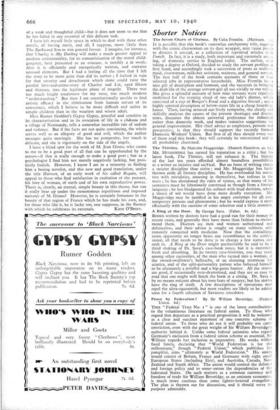Tins "Federal Tract No. " is one of the latest
contributions to the voluminous literature on federal union. To those who regard that departure as a practical proposition it will be welcome as a clear and succinct statement 'of one- concrete scheme of federal union. To those who do not it will probably not carry conviction, even with the great weight of Sir William Beveridge's authority behind it. Unlike some federal unionists who regard Germany's exclusion from a federal union scheme as essential, Sir William regards her inclusion as imperative. Ile works within fixed limits, declaring that "World Federation is for the millennium," though "Federal Union," which publishes his pamphlet, aims "ultimately at World Federation." His union would consist of Britain, France and Germany with eight small European States (including Eire), and Australia, Canada, New Zealand and South Africa. The union would control the defence and foreign policy and to some-extent the dependencies of the federated States. On such matters as a common currency and freedom of trade Sir William Beveridge, as an eminent economist, is much more cautious than some lighter-hearted evangelists. The plan is thrown out for discussion, and it should serve its purpose admirably.






























 Previous page
Previous page